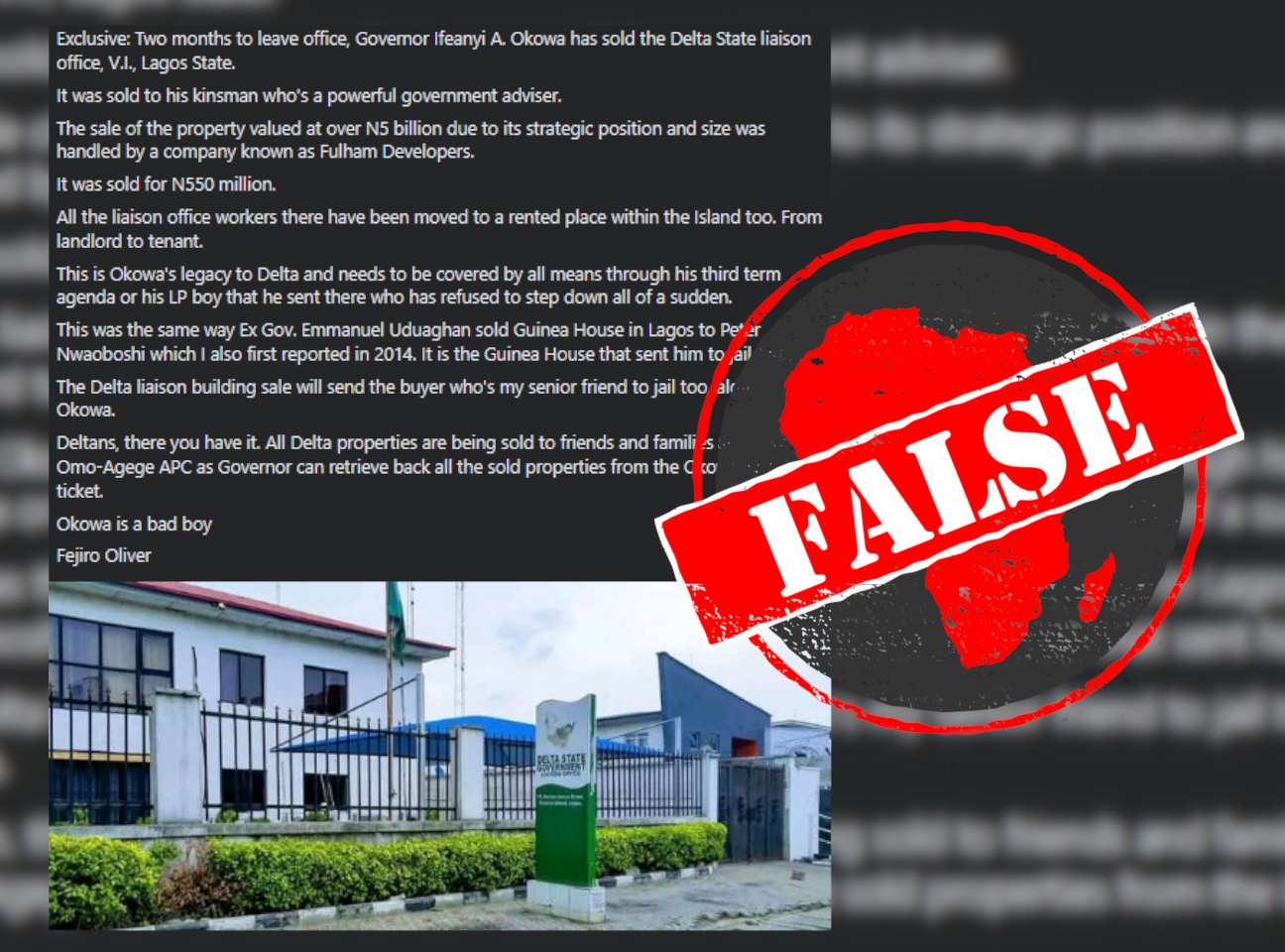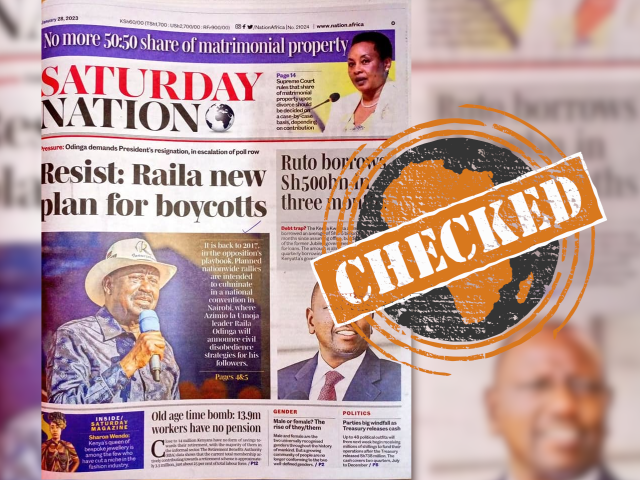IN SHORT: There have been online claims that Delta state’s governor has sold a public property in Lagos to his relative. But officials have denied this.
Nigeria's southern Delta state has sold its liaison office in Lagos for N550 million (US$1.2 million).
That's according to a post on Facebook in March 2023.
A liaison office in a state serves as the administrative headquarters between two governments. All 36 states in Nigeria have a liaison office in Lagos, the country’s economic capital.
The post reads: “Exclusive: Two months to leave office, Governor Ifeanyi A. Okowa has sold the Delta State liaison office, V.I., Lagos State. It was sold to his kinsman who's a powerful government adviser. The sale of the property valued at over N5 billion due to its strategic position and size was handled by a company known as Fulham Developers. It was sold for N550 million.”
This isn't the first time we've read claims that states are selling their liaison offices. In March 2014, the Cross River state government denied reports that it had put its liaison office in Lagos up for sale.
Similarly, in September 2022, there were claims that the governor of Taraba state had plans to sell the state's liaison office in Abuja, Nigeria's Federal Capital Territory.
This more recent claim has also been shared here and here on Facebook.
But has the Delta state government sold its liaison office in Lagos?

‘We engaged property developers to build luxury flats’
In an article published in Nigeria’s Vanguard newspaper on 8 March 2023, the state commissioner for information, Charles Aniagwu, denied the rumours.
He said the state government has plans to rebuild the property and had partnered with property developers to redevelop the site.
Republish our content for free
For publishers: what to do if your post is rated false
A fact-checker has rated your Facebook or Instagram post as “false”, “altered”, “partly false” or “missing context”. This could have serious consequences. What do you do?
Click on our guide for the steps you should follow.
Publishers guideAfrica Check teams up with Facebook
Africa Check is a partner in Meta's third-party fact-checking programme to help stop the spread of false information on social media.
The content we rate as “false” will be downgraded on Facebook and Instagram. This means fewer people will see it.
You can also help identify false information on Facebook. This guide explains how.



Add new comment